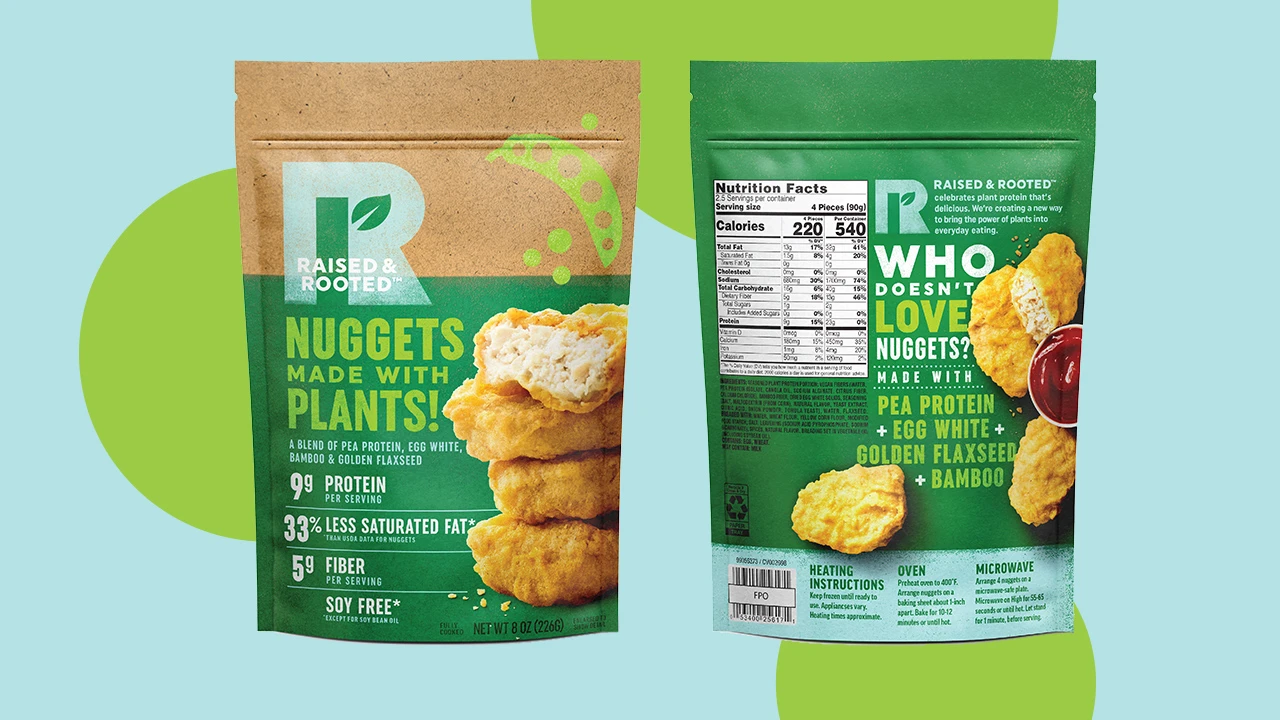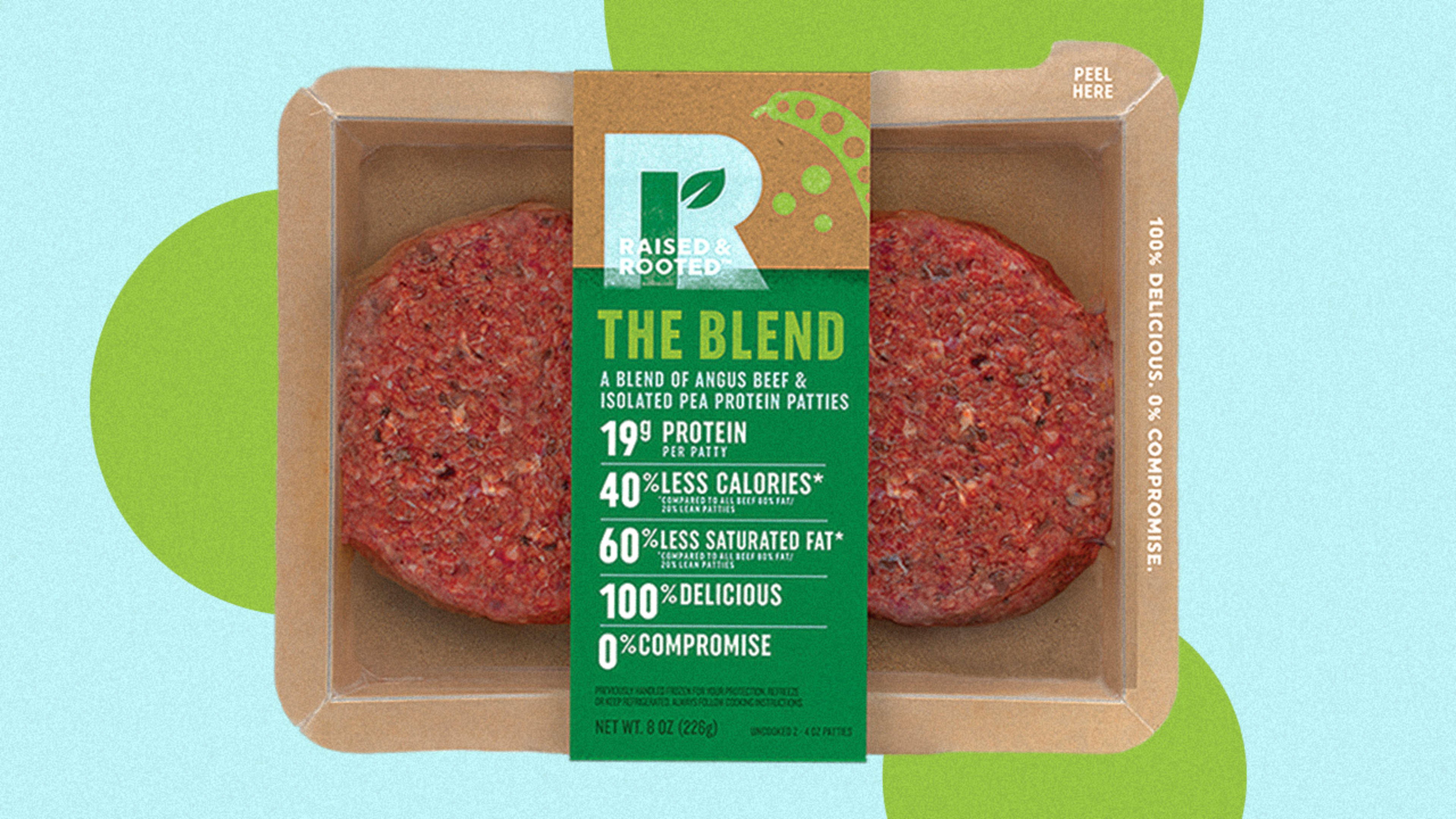Tyson Foods, the largest meat producer in the U.S., was an early investor in the plant-based meat startup Beyond Meat. Now the company is launching its own an alternative protein brand. One of its first products is a “blended burger” that combines beef with peas–making it both healthier and a little more sustainable than a typical burger.
The brand, called Raised and Rooted, will also launch with a new plant-based nugget that could appeal to vegetarians as much as omnivores. But the blended burger’s combination of plants with meat reflects the company’s understanding of the market. “I think if you look at the shape of the demand that’s happening in alternative protein, you’re seeing a lot of it’s being driven by consumers who like meat–and consumers who will continue to eat meat as part of their diets,” says Justin Whitmore, Tyson’s executive vice president of alternative proteins and chief sustainability officer.
The blended burger has 40% fewer calories compared to a typical all-beef burger and 60% less saturated fat; at 160 calories and 7 grams of fat, it also compares favorably to the Beyond Meat burger (270 calories, 20 grams of fat) and the Impossible burger (293 calories, 17 grams of fat).
It also has 2 grams of fiber (beef has none). In terms of protein, the burger has 19 grams, the same as Impossible and one less than a Beyond Burger or a quarter-pound of ground beef. “The burger is going to be much healthier than other options that are out there,” Whitmore says. The company says that it also focused on flavor; the blend, which uses half Angus beef, tastes similar to a beef burger. Because of the high carbon footprint of producing beef–both from the resources used to grow cattle feed and from cattle belches–eliminating a portion of the beef also reduces the environmental impact of the new burger.

The company plans to continue to invest in startups working on new plant-based and alternative protein products. But it recognized that it had the right resources to launch a brand of its own. “As we dug into what it takes to be successful with an alternative protein product–development of great tasting food, the mechanics of the supply chain, shipping in places on time, making it accessible for the masses–we saw that Tyson in North America, in particular, was uniquely positioned to service the demand,” says Whitmore. The new brand will add more products over time, and Tyson will also add new products that feature plants in its other product lines. “This is one piece of a larger approach that we’re taking to innovating and moving quickly with our consumers.”
Recognize your brand’s excellence by applying to this year’s Brands That Matter Awards before the early-rate deadline, May 3.
